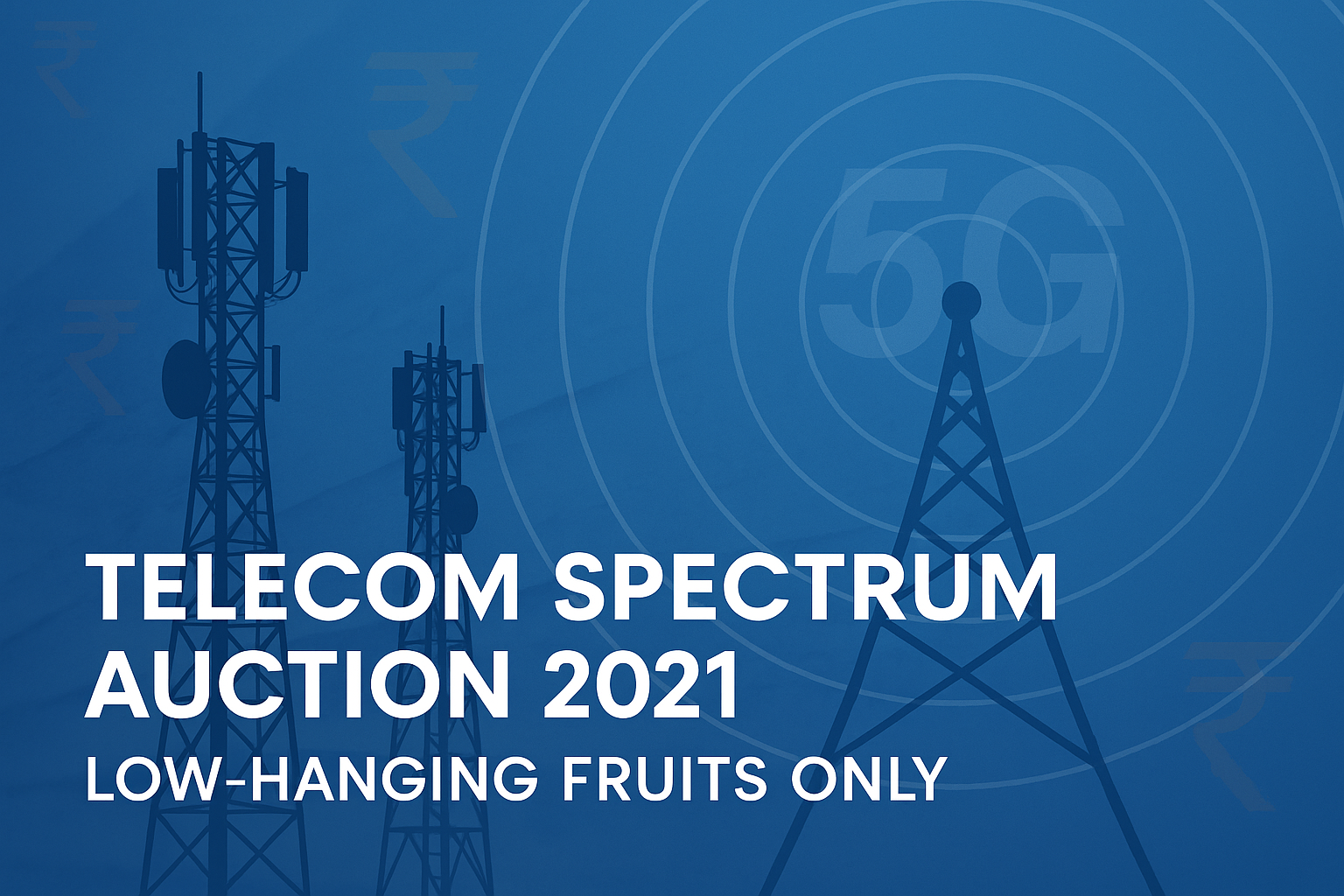Announcement: Lorem ipsum dolor sit amet, consectetur adipiscing elit. Donec et quam blandit odio sodales pharetra.
Telecom auctions are still focusing on the low-hanging fruits
On 02 March, government completed its 2-day auction of telecom spectrum. As against the target of Rs.3.92 trillion via auction, the government ended up collecting just Rs.77,184 crore or less than 20% of the target. What was more disappointing was that the government focused on the low hanging fruit only

Table of Content
Who gains the most
Clearly, a chunk of the bands auctioned went to Reliance Jio. Out of Rs.77,184 crore worth of spectrum auctioned in the week, Jio cornered spectrum worth Rs.57,000 crore across 22 circles. Bharti followed with spectrum to the tune of Rs.18,000 crore allotted during the spectrum auctions. However, most of the action continued in the 800 MHz and the 900 MHz bands. Vodafone has put in less than Rs.2000 crore on spectrum purchase but that was expected due to the tight financial spot it finds itself in. The real disappointment was that the government could have been liberal in setting the reserve price so that more spectrum could have been auctioned. The government, however, has opted to focus on the low-hanging fruits.
Spectrum revenues fall short
The government has been counting on upfront spectrum fees to fill the budget gap this year. How much is government earning this year? The upfront charges are 25% for lower bands and 50% for higher bands. In the current context, the government will earn about Rs.27,000 crore as upfront payment of which nearly Rs.20,000 crore will come in before the end of this fiscal. Clearly, the government was budgeting much higher based on its reserve price value of Rs.392,000 crore in the auction. The government could have focused on the premium band spectrums, instead.
Comments